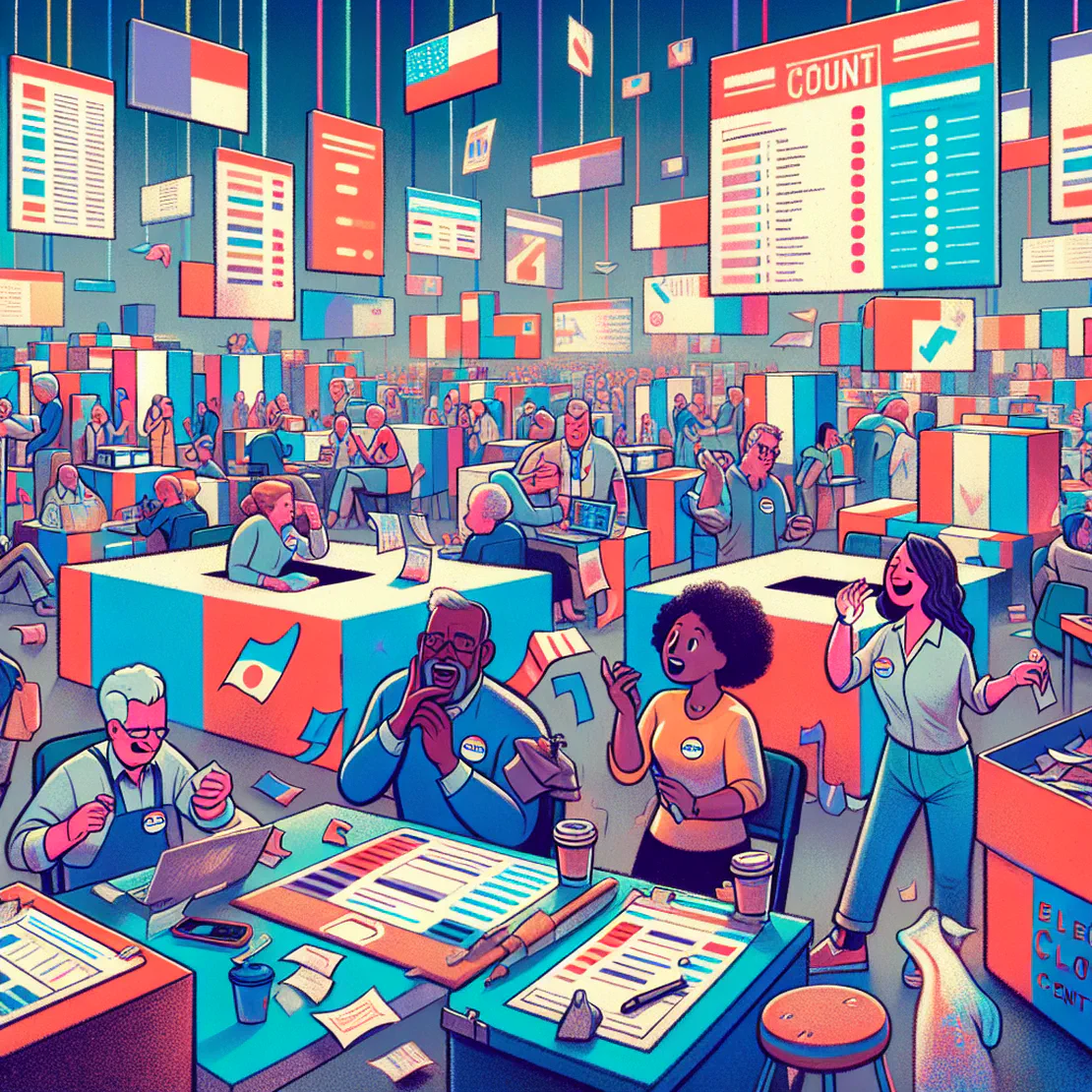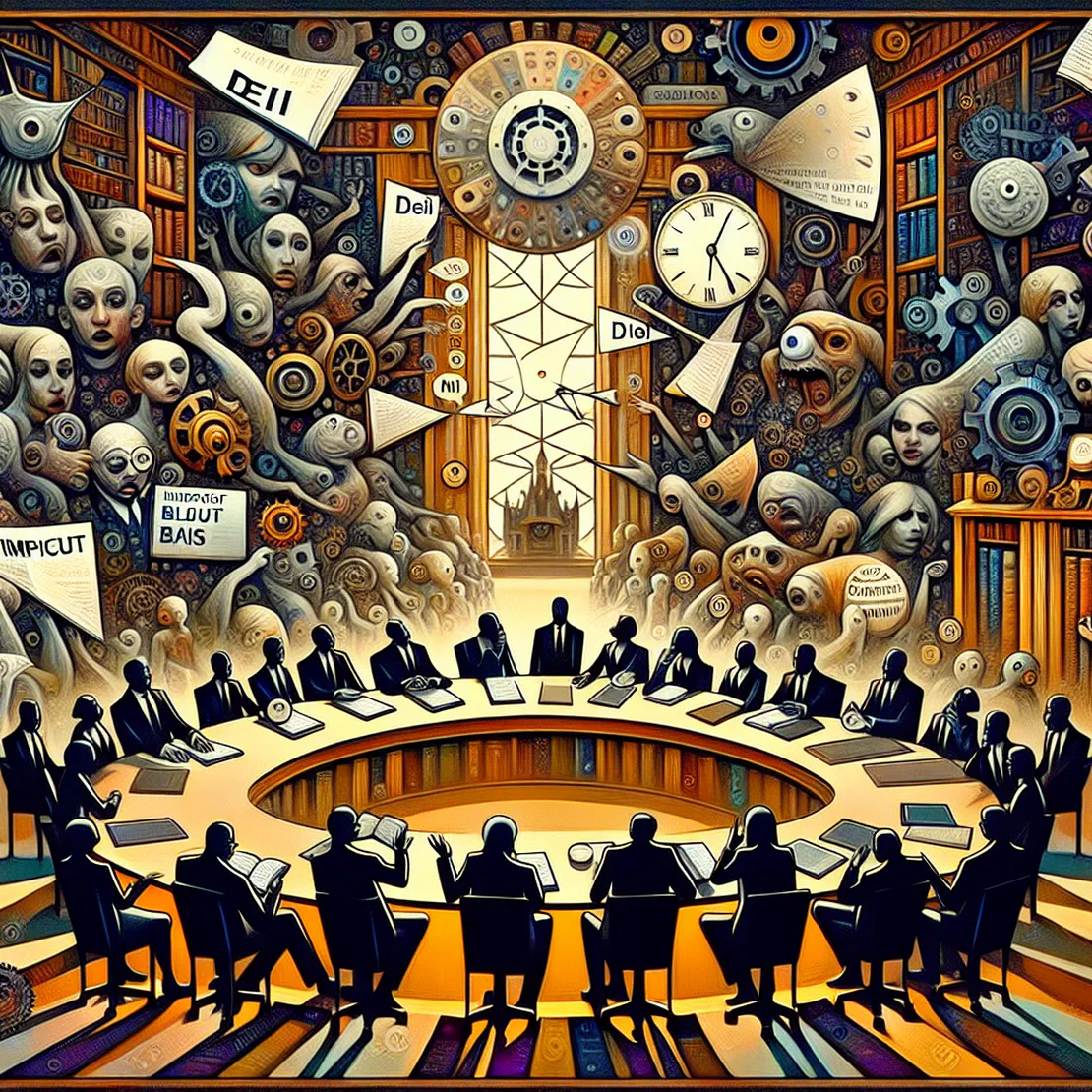
Tweak the Vote
- Radiolab
- Election , Voting , Democracy
- October 18, 2024
Table of Contents
At a Glance
-
Introduction to the Episode Theme - ‘Today on Radiolab, I, Robert, I am going to make you wrestle with your most cherished ideal, American democracy.’ This sets the stage for the episode’s exploration of democracy, hinting at a deep dive into its complexities and challenges.
-
Guest Introduction - ‘Jascha Munch. I’m a lecturer on government at Harvard. He studies politics.’ Introducing an expert provides credibility and frames the upcoming discussion on political systems and their impact.
-
Historical Family Impact - ‘My grandparents sort of barely survived from the Soviet Union. My parents grew up in Poland and were thrown out of the country in a huge sort of anti-Semitic wave in 1968.’ Personal history of the guest adds depth to the discussion on political instability and its human impact.
-
Rise of Far-Right Parties - ‘These far-right parties in Austria and France, they start to gain power, and it’s not just there. The huge swaths of Europe.’ Highlights the concerning trend of far-right political gains in Europe, setting a serious tone for the potential global impact.
-
Ranked Choice Voting Introduction - ‘So this is really going to happen now, like like this week.’ Discussion shifts to practical implementation of ranked choice voting in Maine, emphasizing its real-time relevance and potential effects on election outcomes.
-
Dramatic Election Description - ‘Then all hell broke loose.’ This quote dramatizes the electoral process, adding a sense of suspense and unpredictability to the voting outcomes.
-
Counting Votes in Dublin - ‘The votes actually get counted. So for Dublin Central…Dublin Central gets counted in one central location, which is the RDS.’ Provides a specific example of how votes are counted in a real election, grounding the discussion in a tangible process.
-
Humorous Debate Scenario - ‘And at the end of the debate, the candidates, and I think there were eight of them, all kind of put their arms around each other and one of them suggested that they all sing.’ This light-hearted moment from a political debate illustrates a rare moment of unity and humor among candidates.
-
Impact of Ranked Choice Voting - ‘And while no, everyone’s eighth place choice was not elected in the second congressional race something interesting did happen Jared Golden a Democrat was losing after the first count to the Republican incumbent Bruce Poliquin but ended up winning after the transfers were allocated.’ Focuses on a specific instance where ranked choice voting directly affected the election outcome, highlighting its potential to alter traditional voting results.
-
Expansion of Ranked Choice Voting - ‘Since 2022, Alaska has been using it to elect its governor, its state legislature, its representatives in the House and the Senate, and will even be using it in the presidential election this year.’ Indicates the growing acceptance and implementation of ranked choice voting, suggesting a significant shift in how elections might be conducted in the future.
What to Do
-
‘Update your operating system’ - This metaphor suggests that just as technology needs updates to function effectively, democratic systems also need to be reviewed and updated to address current issues and remain secure.
-
‘Engage in democracy’ - Being involved in a democracy is crucial. It emphasizes the importance of participation in democratic processes, highlighting that a healthy democracy relies on the active engagement of its citizens.
-
‘Vote thoughtfully’ - The discussion on ranked choice voting implies that voters should consider their options carefully, ranking candidates in order of preference, which can lead to more satisfactory electoral outcomes and a more representative governance.
-
‘Encourage civil discourse’ - The example from the Minneapolis mayoral race under ranked choice voting illustrates that maintaining civility during campaigns can prevent alienation of potential supporters and foster a more positive political environment.
-
‘Seek common ground’ - In highly divisive environments, finding commonalities can lead to more effective governance. The anecdote about candidates singing together symbolizes the potential for unity and collaboration, even among competitors.
-
‘Embrace change and repair systems’ - The advice to not just discard but fix what is broken in political systems suggests a proactive approach to reforming and improving the mechanisms of democracy to better serve the populace.
What to Get
-
Metal boxes of ballots - Used for securely transporting and storing paper ballots in an election.
-
Paper voting - Used as a method of casting votes, preferred for its drama and engagement, similar to watching a sports game.
Summary
In this engaging episode of Radiolab, hosts Robert Krolwich and Latif Nasser delve into the complexities of American democracy through a series of thought-provoking discussions and interviews. The episode kicks off with a historical perspective provided by Jascha Munch, a lecturer on government at Harvard, who shares his personal and familial experiences with political systems turning volatile. Munch’s insights set the stage for a broader examination of the rise of far-right parties in Europe, a trend that has unsettling echoes in other parts of the world.
The conversation then shifts to a provocative question about the value of living in a democracy. Data presented in the episode reveals a startling generational gap in the United States: while two-thirds of Americans born in the 1930s and 1940s consider living in a democracy essential, less than one-third of Americans born since 1980 feel the same way. This leads to an even more alarming discussion about the growing acceptance of military rule among young, affluent Americans, underscoring a profound disconnection and dissatisfaction with the current political system.
As the episode progresses, the focus turns to alternative voting systems, specifically the single transferable vote method used in Ireland. This system allows voters to rank candidates in order of preference, ensuring that if their top choice doesn’t secure enough support, their vote can still influence the outcome by counting towards their next preferred candidate. The hosts speculate on how such a system could potentially alter historical election outcomes in the U.S., such as the 2016 presidential election, by redistributing votes from minor candidates to more major ones, possibly changing the final result.
The episode wraps up with a reflective discussion on the state of democracy and the pressing need to address its flaws rather than abandoning it altogether. The hosts advocate for thoughtful reforms to reinvigorate democratic engagement and ensure that the system better represents the will of the people. Throughout the episode, the tone remains informative yet accessible, making complex topics understandable and relevant to a wide audience, including college freshmen.


